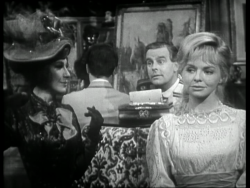by NEIL SINYARD
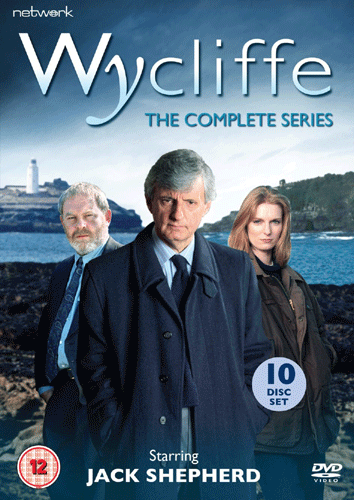 The 10-disc DVD release by Network of the complete series of Wycliffe is a cause for rejoicing, particularly when a Radio Times survey of TV’s 50 top-rated Detective series (July 2018) unforgivably did not even include it. This only confirmed my conviction that it is the most underrated British cop series, maintaining, once it hit its stride, an extraordinarily high standard of acting, directing, and writing over around 40 episodes. The interplay of the main characters was constantly evolving and shrewdly developed; the guest performances (from the likes of such redoubtable actors as Bill Nighy, Pam Ferris, Susan Fleetwood, John McEnery, Dominic Guard, Geoffrey Bayldon, Susan Penhaligon and many others) were often remarkable; the scripts were a model of economy and ingenious plotting; and the Cornish setting always heightened the drama without ever dominating it. Even Nigel Hess’s theme tune was one of his best (and every police drama, from Z-Cars and Maigret onwards, should have a good and distinctive theme tune.) A typical 50-minute episode contained more nuance, subtlety and surprise of narrative and characterisation than Broadchurch managed for me in three series.
The 10-disc DVD release by Network of the complete series of Wycliffe is a cause for rejoicing, particularly when a Radio Times survey of TV’s 50 top-rated Detective series (July 2018) unforgivably did not even include it. This only confirmed my conviction that it is the most underrated British cop series, maintaining, once it hit its stride, an extraordinarily high standard of acting, directing, and writing over around 40 episodes. The interplay of the main characters was constantly evolving and shrewdly developed; the guest performances (from the likes of such redoubtable actors as Bill Nighy, Pam Ferris, Susan Fleetwood, John McEnery, Dominic Guard, Geoffrey Bayldon, Susan Penhaligon and many others) were often remarkable; the scripts were a model of economy and ingenious plotting; and the Cornish setting always heightened the drama without ever dominating it. Even Nigel Hess’s theme tune was one of his best (and every police drama, from Z-Cars and Maigret onwards, should have a good and distinctive theme tune.) A typical 50-minute episode contained more nuance, subtlety and surprise of narrative and characterisation than Broadchurch managed for me in three series.

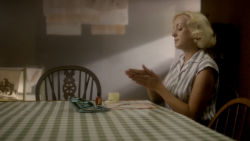 Call the Midwife often makes skilful use of editing to interweave its lead characters with its guest characters. This aids storytelling, heightens our understanding of characters in their social environment and at times even complicates the position of the midwives in that environment. This essay will explore editing and other aspects of form in two sequences from Call the Midwife series two episode five, to explore the ways in which the problems of guest character Nora Harding are interwoven with two lead characters: the first sequence is a well-executed piece of storytelling, whilst the second is an extraordinary use of technique to devastating effect.
Call the Midwife often makes skilful use of editing to interweave its lead characters with its guest characters. This aids storytelling, heightens our understanding of characters in their social environment and at times even complicates the position of the midwives in that environment. This essay will explore editing and other aspects of form in two sequences from Call the Midwife series two episode five, to explore the ways in which the problems of guest character Nora Harding are interwoven with two lead characters: the first sequence is a well-executed piece of storytelling, whilst the second is an extraordinary use of technique to devastating effect.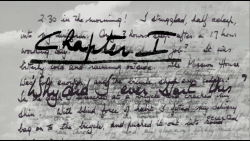
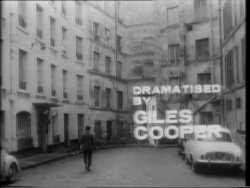 Giles Cooper is widely recognised as having been Britain’s greatest radio dramatist. He was highly prolific, writing dozens of original plays and adaptations for radio across a period of around 13 years. He was responsible for many of the medium’s masterpieces during the 1950s and his accomplishments were acknowledged posthumously with the BBC’s radio playwriting award being named in his honour. He also wrote for the stage, having particular success with his 1962 play Everything in the Garden, a dark comedy of middle-class suburban hypocrisy and greed.
Giles Cooper is widely recognised as having been Britain’s greatest radio dramatist. He was highly prolific, writing dozens of original plays and adaptations for radio across a period of around 13 years. He was responsible for many of the medium’s masterpieces during the 1950s and his accomplishments were acknowledged posthumously with the BBC’s radio playwriting award being named in his honour. He also wrote for the stage, having particular success with his 1962 play Everything in the Garden, a dark comedy of middle-class suburban hypocrisy and greed. 